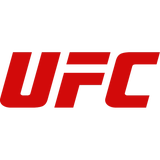
Cung Le fires back: 'I did not take any performance-enhancing drugs'
UFC middleweight Cung Le is fighting back after being suspended one year for testing positive for human growth hormone following his loss to Michael Bisping in August.
The suspension was announced this week by the UFC, which acted as the athletics commission for Le's fight in China because no athletic governing body exists there. The UFC announced that Le's test results returned positive for elevated levels of HGH, which is illegal under the rules of the World Anti-Doping Agency.
On Thursday, a day after the test results were made public, Le broke his silence in a statement issued by his manager refuting the charges that he tested positive for HGH. Le said he had never tested positive for any drugs in his previous fights, and he's taking these allegations very seriously, especially considering the lengthy suspension and black mark it puts on his name.
"I was completely surprised at the results of my recent drug test," Le said in the statement. "I was informed by the UFC that I passed my pre- and post-fight drug test as well as the majority of the blood tests with the only abnormality being an elevated level of hGH being determined to be present.
"I tested negative for Anabolics, Stimulants, Diuretics, Masking Agents and my Testosterone levels were within World Anti-Doping Agency and Nevada State Athletic Commission Approved limits a total of three times over two urine tests and a blood test collected both before and after my fight which is what makes these hGH result so difficult for me to accept as correct."
Le believes the testing done to detect HGH could be faulty and the reason for his positive result. He stands by his statement that he did not take any drugs that would cause a positive test and remains very concerned about the matter.
"This has also caused me to call the testing procedures into question," Le said. "I have been informed that there are many possible reasons for a level of hGH to exceed what is allowed unknowingly and my doctors are researching those possibilities, which may include a much more serious health concern.
"I have also been informed about the unreliability of the current hGH testing that exists and it's high rate of inaccuracy. I want to reiterate to my fans and the fans of mixed martial arts everywhere that I did not take any performance-enhancing drugs or anything that would cause my natural level of hGH to exceed normal levels. "
Le doesn't just throw out accusations about the testing, however, as he and his team fire back with some inaccuracies they believe exist in the matter with which the samples were collected, tested, the lab where they were tested and the testing methods.
"We were informed that the laboratory was advised to use the WADA approved rules and procedures when conducting the testing that they administer, yet the lab in Hong Kong contracted to do the testing was not WADA approved, which was surprising since there was a WADA approved lab available in Beijing, China," the statement read. "The blood sample was collected post-fight when the natural hGH levels are the least reliable as the body in an attempt to heal itself will naturally release more hGH, but even more of a concern is that the more reliable and WADA required test for hGH known as the IGF-1 test was never conducted on the sample.
"When we contacted the UFC to request that this more reliable test be conducted, we were informed that this was not possible as the lab only retained the sample for a week following the fight. WADA regulations require that samples are to be frozen and held for 10 Years, so that they can be retested in the event of a challenge. WADA rules state that when testing for hGH, the lab must use the 'Isoform Differential Immunoassays' or 'the Isoforms Test,' a procedure which requires the IGF-1 test be performed. Again, this test was not performed by the lab and could not subsequently be performed as the sample had been destroyed."
Le's management team at AMR Group also fired back after their client tested positive and the UFC opted to suspend him for a year without the chance to appeal. They stand by Le's plea of innocence and remain steadfast in their belief that something else caused the positive drug test.
"Cung Le has been a professional martial artist for over 20 years and has always conducted himself with honor showing a deep respect for his supporters and opponents; to have him made a public example based on suspect testing procedures conducted by a lab unfamiliar with the WADA rules is irresponsible," AMR Group said in the statement.
"With the results of such testing having such a powerful effect on athletes reputations and futures we believe it would be better served to have future testing conducted by a WADA approved laboratory that knows and follows the established procedures to the letter so as to ensure something like this doesn't happen again. Cung is extremely disappointed at the results of the test and that the UFC would make such an unprecedented decision to extend his suspension from 9 to 12 months when the testing procedures remain unclear."
As of now, the UFC has enforced the one-year suspension on Le, which would make him eligible to return to action in late August 2015. At 42 years old, it's hard to imagine Le would make another run after a year away from the sport, but regardless that's the earliest he could return.
